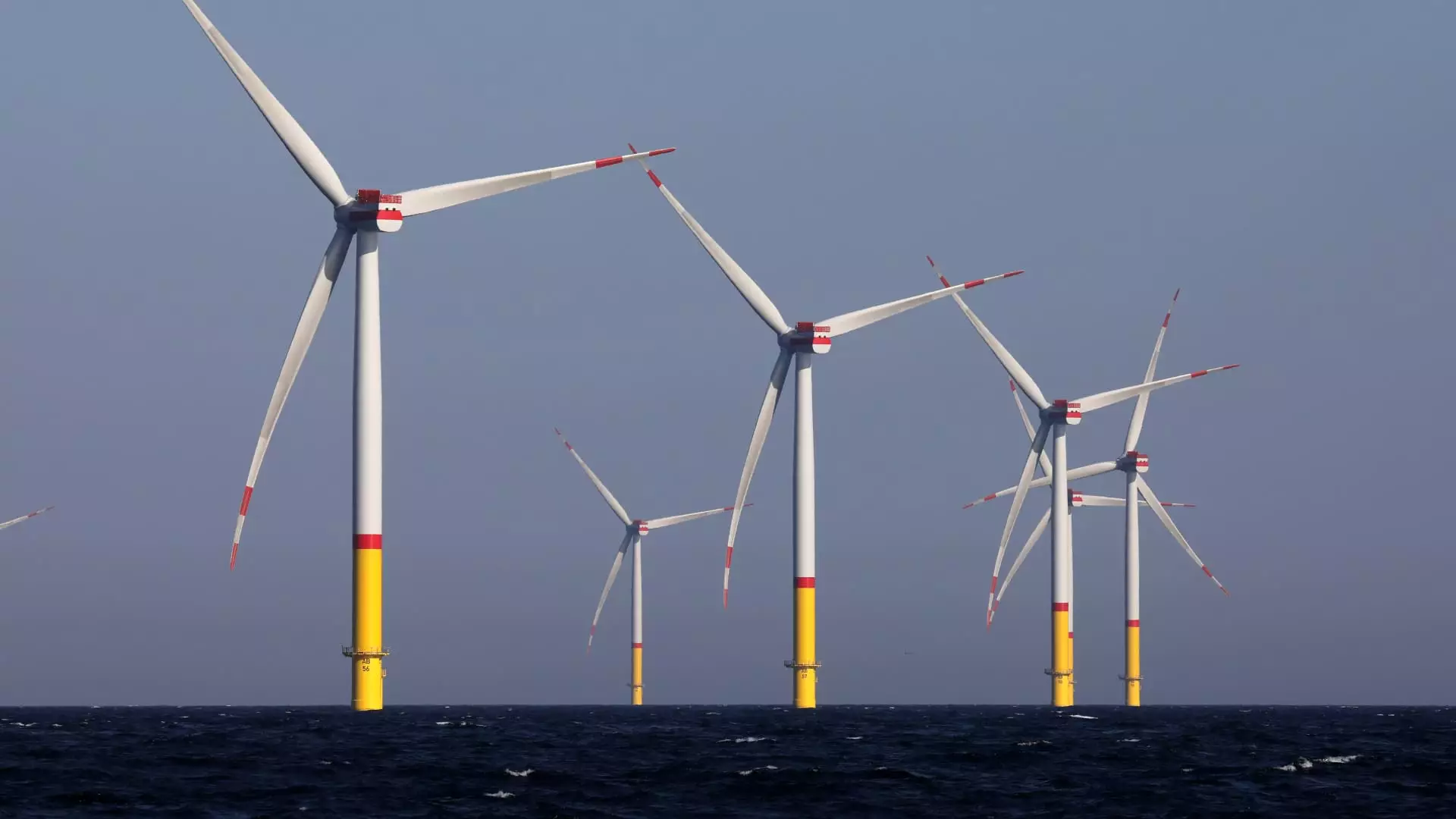The recent announcement regarding Equinor’s Empire Wind project has unveiled a troubling chapter in the landscape of renewable energy in the United States. Following an order from the Trump administration that sought to halt construction on this landmark offshore wind farm, a fragile sense of progress now hangs in the balance. Empire Wind 1, designated to be New York City’s first offshore wind project, embodies hope for sustainable energy, yet it seems caught in a perpetual tug-of-war between political interests and environmental necessity. The halt and subsequent resumption of construction highlight a chaotic energy policy that threatens to undermine the very foundations laid by climate advocates aiming for a cleaner future.
This project was initially greenlit by the Department of the Interior under the Biden administration, representing a significant stride toward harnessing the ocean’s wind potential. The transition from a halt to an approval can be viewed not merely as a procedural step, but as a disturbing reflection of the volatility in energy policy, particularly when influenced by past administrations’ ideologies. It raises the question: how many other renewable initiatives are hanging by a thread, susceptible to the winds of political change?
Union Jobs at Risk Amidst Political Maneuvering
With Up to 1,500 jobs promised from the Empire Wind project, Governor Kathy Hochul rightly emphasized the socio-economic impact of the project’s cessation. Those jobs represent more than mere statistics; they are livelihoods, families, and a workforce that stands to benefit from the shift toward renewable energy. Yet, the very fact that these jobs can be jeopardized by shifting political tides points to an alarming reality—energy policies driven largely by political posturing rather than sustained commitment to job creation and environmental stewardship.
The rhetoric surrounding the “critical pipeline capacity” touted by Interior Secretary Doug Burgum smacks of an outdated narrative that privileges fossil fuels over renewable energy. Indeed, it seems dissonant that amid a climate crisis, the administration should reiterate the benefits of natural gas, particularly in a state with a historical skepticism towards such projects. This is not simply about energy diversity but rather about prioritizing a sustainable future—one that must not be compromised for short-term political gains.
The Tug-of-War Between Progress and Political Ideology
The ongoing feud between the interests of the Trump administration and those of the current government serves as a microcosm of a larger issue—the polarizing politics of energy. Trump’s historical aversion to wind energy, characterized by exaggerated critiques claiming turbines cause avian deaths and economic loss, reveals a fundamental misunderstanding of the potential of renewable energy. His consistent disparagement of wind farms, marked by over 150 posts on social media platforms, illustrates a profound resistance to embracing a future where renewables can play a critical role in domestic energy production.
Ironically, while the former president claimed to champion energy independence, his policies effectively sidelined one of the most promising paths forward. The Empire Wind project serves as a litmus test for the viability of wind energy. If such an initiative cannot withstand the whims of political friction, what hope do we have for the multiple wind projects still in development across the Eastern Seaboard?
Investments and Future Prospects
Equinor’s commitment to investing $2.5 billion in the Empire Wind project signals serious intent in advancing renewable energy capabilities. Despite the tumultuous political landscape, their ambition to construct 54 turbines capable of generating 810 megawatts of electricity demonstrates a bullish bet on the future—one that could power upwards of half a million households. Yet, this is juxtaposed against a backdrop of instability stemming from political decisions that can suddenly curtail progress.
The company’s Chief Financial Officer, Torgrim Reitan, aptly labeled the Trump administration’s stop-work order as “unlawful, extraordinary, and unprecedented.” This criticism not only underscores the absurdity of the situation but beckons us to question whether the governance surrounding renewable energy projects can provide a stable and supportive environment necessary for their success. The repercussions of political maneuvering are deeply felt, with stakeholders grappling with the uncertainty of regulatory frameworks that should inspire confidence rather than fear.
A Call for Renewed Commitment
As we move deeper into a century where environmental degradation cannot be ignored, the Empire Wind project—and others like it—serve as critical components in our national energy blueprint. They represent a path not just toward economic revitalization through job creation, but a necessary shift toward cleaner energy that aligns with global sustainability goals. A shift that must not be derailed by political back-and-forths.
In a time when the planet grapples with climate crisis and ecological breakdown, it is essential that we remain steadfast in our commitment to renewable energy. The interests of the few should not eclipse those of the many—especially when the promise of sustainable, clean energy hangs in the balance. It is time for political leaders to prioritize the planet, communities, and the workforce that will power our transition to a green economy, rather than allowing outdated ideologies to dictate our energy future.

